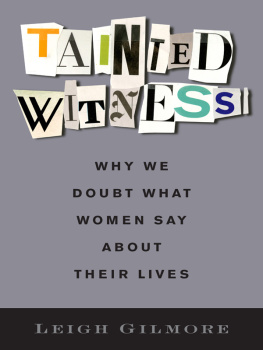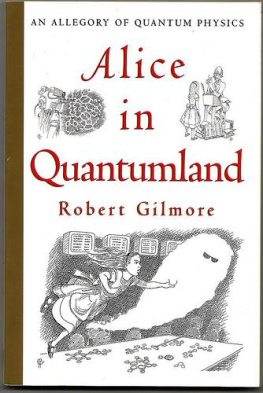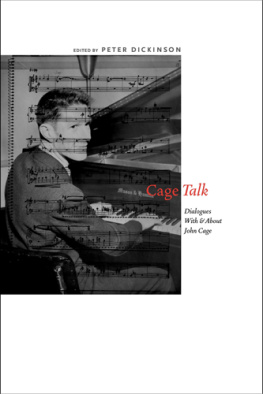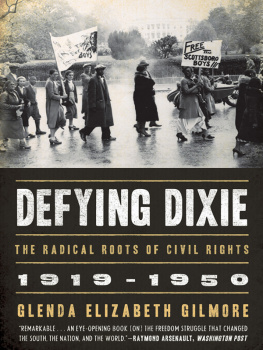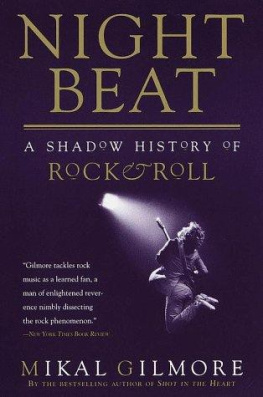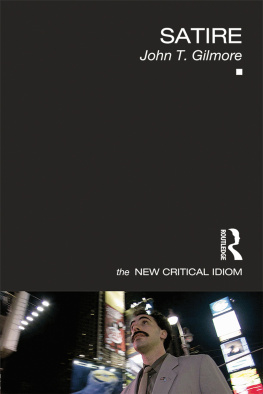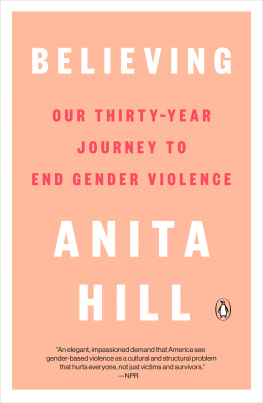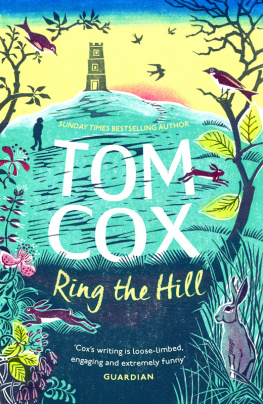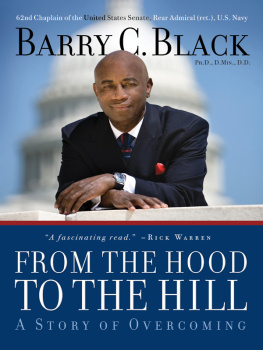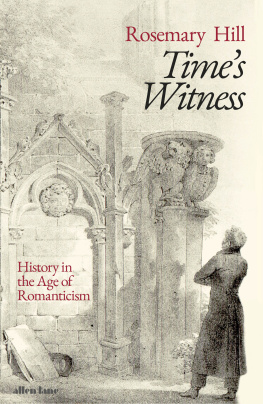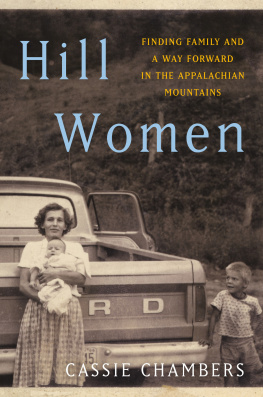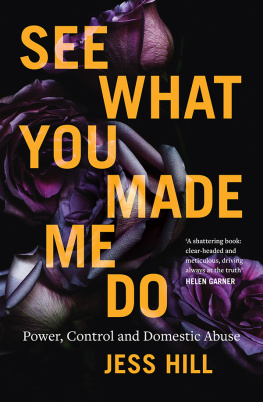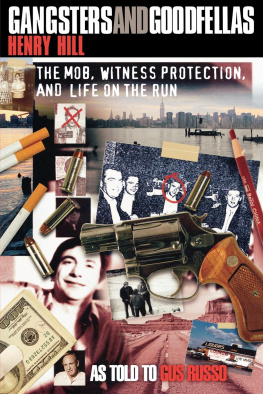Table of Contents
TAINTED WITNESS
GENDER AND CULTURE
GENDER AND CULTURE
A SERIES OF COLUMBIA UNIVERSITY PRESS
Nancy K. Miller and Victoria Rosner, Series Editors
Carolyn G. Heilbrun (19262003) and Nancy K. Miller, Founding Editors
For a full list of titles in this series, see
TAINTED WITNESS
WHY WE DOUBT
What Women Say
ABOUT THEIR LIVES
LEIGH GILMORE
Columbia University Press
New York
Columbia University Press
Publishers Since 1893
New York Chichester, West Sussex
cup.columbia.edu
Copyright 2017 Columbia University Press
All rights reserved
E-ISBN 978-0-231-54344-6
Library of Congress Cataloging-in-Publication Data
Names: Gilmore, Leigh, 1959 author.
Title: Tainted witness: why we doubt what women say about their lives/Leigh Gilmore.
Description: New York: Columbia University Press, [2016] | Includes bibliographical references and index.
Identifiers: LCCN 2016033453 | ISBN 9780231177146 (cloth: alk. paper) | ISBN 9780231543446 (e-book)
Subjects: LCSH: Sex discrimination against womenLaw and legislation. | Sex discriminationLaw and legislation. | Sex discrimination in criminal justice administration. | WitnessesPublic opinion. | CrimeSex differences. | WomenCrimes againstPublic opinion. | False testimony. | Feminist theory.
Classification: LCC K3243 .G55 2016 | DDC 342.7308/78dc23
LC record available at https://lccn.loc.gov/2016033453
A Columbia University Press E-book.
CUP would be pleased to hear about your reading experience with this e-book at .
Cover design: Mary Ann Smith
FOR GILLIAN WHITLOCK
CONTENTS
T his project developed over more than a decades interest in autobiographical practices, cultural processes of judgment, and histories of testimony. It has traveled with me as I have moved from Ohio to California and back to Boston, and I owe a debt of gratitude to those who have stayed with me through these transitions, as well as those who have welcomed me to new places. At Ohio State University, where this work began, I thank Nick Howe, and remember him here, Jennifer Terry, Luke Wilson, and Dorothy Roberts for conversations that helped me to launch this project. Jim Phelan, Sandra Macpherson, Wendy Hesford, and Jared Gardner offered encouragement, often through their own fine work. I presented early drafts of some of the chapters during visiting appointments at UC Santa Cruz and UC Berkeley. I thank Judith Butler, Michael Lucey, Charis Thompson, Gayle Salamon, Carla Freccero, Jim Clifford, and Donna Haraway for their generosity. Other parts of the project took shape during visiting appointments and in conversation with Linda Blum, Laura Greene, Carla Kaplan, and Suzanna Walters at Northeastern University; with Amy Hollywood, Frank Clooney, and Ann Braude at Harvard Divinity School; and with Phillip Gould at Brown University. Many thanks to hosts and interlocutors who generously engaged with work in progress, including Teresa Brus at Wroclaw University in Poland, Clare Brant and Max Saunders at Kings College in London, Sidonie Smith at University of Michigan, Kathleen Woodward at University of Washington, and meetings of the International Association of Autobiography and Biography in Sussex, Puerto Rico, and Michigan. I am especially grateful for Sidonie Smiths invitation to speak at the Presidential Forum at the MLA in Los Angeles in 2011 and to share that conversation with others whose work is important to mine, including Hillary Chute and Gillian Whitlock. I am grateful to Sid for a career-long intellectual conversation that has enriched and expanded every aspect of my understanding of life writing. I thank Julia Watson, with whom I too briefly overlapped at Ohio State, for the inspiration of her expansive archive. I thank Sid and Julia for their invitation to offer a keynote in Ann Arbor at a meeting of the IABA-Americas chapter. I have been inspired by the work of and conversations with Marcia Aldrich. My colleagues in life writing have pressed my thinking forward and dazzled me by the sheer range of their scholarly commitments; thanks especially to Craig Howes, Margaretta Jolly, Julie Rak, Anna Polletti, Kate Douglass, Laurie MacNeill, Eva Karpinksi, Laura Lyons, Cynthia Franklin, and John Zuern. Thanks to Lauren Berlant for the inspiration of her scholarship. Thanks also to a new generation of scholars whose thinking enlivens my own, including Joss Greene, Amulya Mandava, Jenell Navarro, Jose Navarro, and Surya Parekh. I thank my friends Shea Wilson, Matthew Sutton, Meredith Greiner, Pam Dickinson, Casey Near, Alejandra Kramer, and Robert and Anne Van Cleve. A special thanks to Brian and Patrice Taylor for respite under the oaks and design advice. Many thanks to those who welcomed us back to Boston, especially Bill and Helen Pounds, Morgan Mead, Bob and Alison Murchison, and Marlene Kenney and Josh Gray. I thank my editors, Nancy K. Miller and Victoria Rosner, for their skill and enthusiasm. I am especially grateful for the model of feminist collegiality and professionalism enacted by them and the director of Columbia University Press, Jennifer Crewe. I am honored that this book is included in a series I greatly admire. The anonymous readers of this manuscript took extraordinary care in their responses and greatly improved its final shape. They have my abiding gratitude. Closer to home, I thank my family, Tom, Finn, and William for support, patience, and lively engagement. I offer special thanks to Beth Marshall who stood guard over this project from its inception and who has read every word with her keen editorial acumen.
The dedication honors a decades-long, continent-spanning intellectual and personal friendship with Gillian Whitlock, my brilliant interlocutor and steadfast editor. Writing is solitary work, but what feeds it draws on personal wells of encouragement, shared interest, and honesty. I thank Gillian for all of these.
Some of the thinking in this project builds on work that was published previously. I gratefully acknowledge permission to include revised versions of the following articles:
What Was I? Literary Witness and the Testimonial Imperative. Profession (2011): 7784.
American Neoconfessional: Memoirs, Self-Help, and Redemption on Oprahs Couch. Biography 33, no. 4 (Fall 2010): 65779.
Jurisdictions: I, Rigoberta Mench, The Kiss, and Scandalous Self-Representation in the Age of Memoir and Trauma. Signs 28, no. 2 (Winter 2002): 695719.
The past is neither inert nor given. The stories we tell about what happened then, the correspondences we discern between today and times past, and the ethical and political stakes of these stories redound in the present.
SAIDIYA HARTMAN, LOSE YOUR MOTHER: A JOURNEY ALONG THE ATLANTIC SLAVE ROUTE
This book examines a series of contentious cases in which the conventional association of women with lying ignited the fire of scandal and provided an ample supply of incendiary material in the form of the suppressed histories of slavery and colonialism for it to burn brightly. In the conflagration of scandal, women who bore witness were besmirched even as those who distorted their testimony presented their bias as if it were illuminating and rational. However, even as these cases migrate from scandal to yesterdays news, womens testimony continues to move in pursuit of new venues, jurisdictions, and publics where it may bear witness anew.

